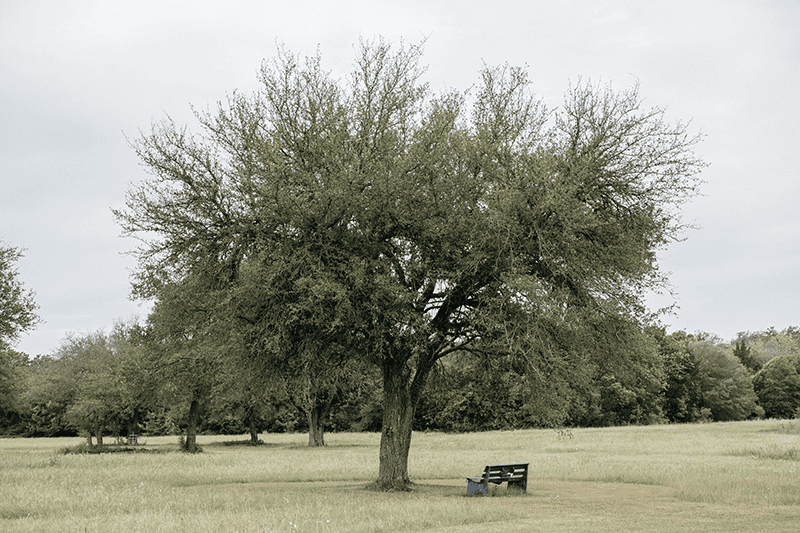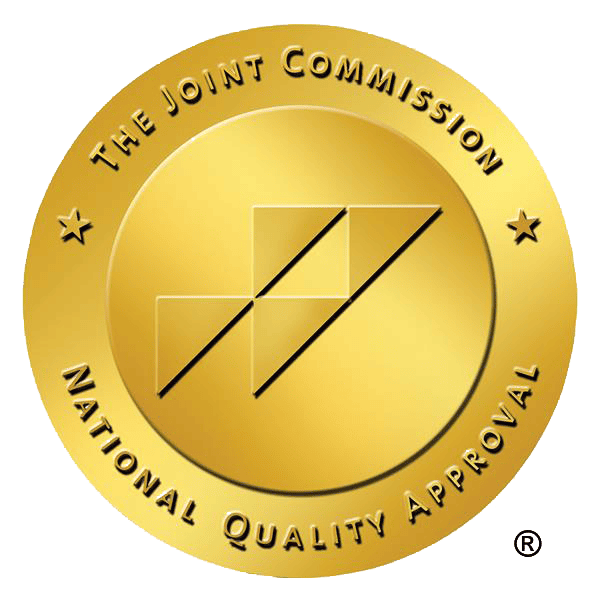In a world often clouded by stigma and misunderstanding, admitting the need for help with drug addiction is a courageous step. Whether one is dealing with the overwhelming grip of substance dependency or grappling with how to help someone with drug addiction, one thing remains clear: the journey to recovery begins with acknowledging the need for support. At Prairie Recovery, we strive to give people the best recovery experience possible when seeking drug addiction treatment in Austin, TX.
We recognize the challenges intertwined with substance abuse and addiction. With our highly experienced staff, cutting-edge therapies, and evidence-based treatments, we provide a secure and welcoming environment where individuals conquer their addiction and pursue a life of greater contentment and purpose.
The Need For Drug Addiction Treatment in Austin, TX
The city of Austin is among those leading the nation in drug abuse and addiction. Hence, there is an urgent need for drug addiction treatment. The devastating impact of the opioid epidemic and other drug-related crises compounds the problem. Recent statistics have revealed that one in every six people living within the city experience drug or alcohol-related problems during their lifetimes. This means that they either abuse alcohol or drugs or know a family member or friend who struggles with substance use.
These are some of the current trends as reported by the University of Texas at Austin:
- Meth outnumbers other drugs and continues to increase in use.
- Heroin use has also been rising in recent years.
- Cocaine use is down. However, overdose fatalities are increasing.
- Fentanyl use is growing as it is being mixed with other illicit substances.
- Benzodiazepine use is down, except there has been an increase in overdose death rates.

Understanding Drug Addiction
Drug addiction is a complex brain disorder that involves recurrent, compulsive substance use despite harmful consequences. Put simply, drug addiction is a disease. Those struggling with drug addiction experience intense cravings and compulsions to engage in substance abuse. Addiction causes physical, psychological, financial, and social problems.
Long-term drug use alters how the brain works which leads to the question, what are the signs of drug addiction? Disruption of cognitive function leads to changes in behavior, including increased impulsiveness, decreased ability to control urges, impaired decision-making skills, and lowered inhibitions.
Fortunately, addiction can be effectively treated. Seeking drug addiction treatment is a necessary first step on the road to recovery, and The Prairie Recovery Center is available to help.
What Is the Difference Between Dependence and Addiction?
When learning how to help someone with drug addiction, it’s crucial to know the difference between dependence and addiction.
Addiction treatment in Austin addresses the critical issue of dependence, a state where individuals physically and psychologically rely on a substance. This condition manifests as tolerance, where more of the substance is needed to achieve the same effects.
Dependence also manifests in withdrawal, physical and mental symptoms that occur when the substance is reduced or stopped. It’s important to understand that dependence on a substance doesn’t always equate to addiction, but it often acts as a precursor.
In the realm of drug addiction treatment in Austin, TX, addiction is defined as an overwhelming, uncontrollable urge to use a substance despite the adverse effects it may have. Compulsive behavior is the result of changes in the brain that hinder the ability to cease substance use without professional intervention.
Addiction encompasses both mental and physical aspects of dependence, necessitating a comprehensive approach to treatment. The Prairie Recovery Center’s treatment for drug addiction in Austin, TX, focuses on addressing these multifaceted challenges, offering tailored therapies to help individuals overcome addiction and regain control over their lives.

Common Addictions in Austin, TX
- Alcohol Addiction: A disorder where an individual has a strong and uncontrollable urge to consume large amounts of alcohol. It can often lead to significant health risks like liver damage, heart disease, and stroke.
- Opioid Addiction: An addiction to pain medication or illicit opioids that work on the brain’s reward system by providing euphoria but eventually cause addiction when misused or abused in high doses over time.
- Cocaine Addiction: A powerful stimulant drug made from the coca plant leaves that affects dopamine levels in the brain, creating feelings of pleasure and energy. Extended use leads to psychological and physical dependence as well as potentially deadly side effects such as heart attack or stroke.
- Heroin Addiction: One of the most dangerous addictions because it directly accesses specific opioid receptors within the brain, causing extreme cravings and compulsive behaviors, often resulting in severe mental issues, including depression.
- Hallucinogen Addiction: Drug abuse focused on hallucinogens, such as LSD, mushrooms, and ecstasy.
- Stimulant Addiction: Drug use is associated with substances like cocaine, amphetamines, meth, and psychostimulants that produce intensely pleasurable highs, exaggerated alertness, and increased focus followed by crashes.
What are the signs of drug addiction?
Recognizing the signs and symptoms of drug addiction is crucial in understanding this complex disease.
The type and extent of drug addiction signs and symptoms vary based on several factors. For instance, the type of drug, frequency of use, the amount used, and how long someone has been using.
Generally, some common signs and symptoms can include the following:
- Cravings: The desire to drink or use drugs becomes overwhelming and the only thing someone thinks about.
- Compulsivity: The inability to regulate and control drug use.
- Tolerance: Increased tolerance requires someone to use more and more of the substance to achieve the desired effects.
- Withdrawal: Physical discomfort, like headaches, nausea, vomiting, and gastrointestinal problems, when the substance wears off.
- Changes in Appearance: Slurred speech, shaky hands, sudden weight loss or weight gain, and changes in sleep habits.
- Changes in Behavior: Increased isolation from friends and family, lying about drug use, and increased secretive behavior to hide drug use.
- Financial Struggles: Job loss and difficulties paying bills due to drug use.
- Legal Problems: Arrests due to illegal activities associated with drug use, like possession or DUI.
- Risk-Taking Behaviors: Putting oneself in dangerous situations.
- Lack of Hygiene: Poor hygiene, not bathing regularly, and wearing the same clothes for days or weeks.
How We Treat Drug Addiction
Treatment for drug addiction in Austin, TX, involves a variety of approaches. Treatments are tailored to meet the unique needs of each individual wherever they are in the recovery journey.
From holistic methods to medical detoxification to counseling and behavioral therapies, these treatments help individuals stop drug use, maintain a drug-free lifestyle, and become productive members of society.
The various drug addiction treatments in Austin, TX, include:
- Detoxification (Detox): The first step. It is the body’s natural process of removing toxins from the body. Drug detox is often done under medical supervision to ensure safety and manage withdrawal symptoms.
- Residential Treatment: Our residential drug addiction treatment in Austin, TX, offers intensive and structured environments for individuals struggling with substance abuse to receive comprehensive therapy, support, and education to aid in their recovery journey 24/7. It includes individual and group therapy, medical care, and activities to support recovery.
- Outpatient Rehabilitation: Allows individuals to attend treatment sessions while living at home. It suits those with a solid support system and a stable living environment.
- Medication-Assisted Treatment (MAT): Uses medications, such as methadone, buprenorphine, or naltrexone, along with counseling and behavioral therapies, to treat substance use disorders.
- Behavioral Therapies: Include cognitive-behavioral therapy, contingency management, and motivational interviewing. These therapies help individuals change their attitudes and behaviors related to drug use
- Holistic Healing: holistic therapy approaches addiction treatment by addressing the individual’s physical, emotional, and spiritual well-being, aiming to heal the whole person rather than just the addiction symptoms. It incorporates various therapies such as acupuncture, yoga, meditation, nutrition therapy, and mindfulness practices to promote overall wellness and support recovery.
At The Prairie Recovery Center, each client’s individualized plan also includes follow-up care with case managers, and aftercare and alumni programs to ensure long-term success in sobriety.

How Do I Know If I Should Seek Drug Addiction Treatment in Austin, TX?
Are you or a loved one experiencing signs and symptoms of drug addiction? For example, the inability to decrease use or stop, cravings for the substance, physical discomfort when not using, and compulsive behaviors. If so, there is no shame in seeking professional help. Don’t put it off.
People in these situations often find comfort in talking to our intake specialists, who can answer questions and help you determine what treatment best suits your needs. We offer comprehensive programs, like residential drug addiction treatment in Austin, where clients can safely detox from drugs and get professional support 24/7 in their recovery journey.




